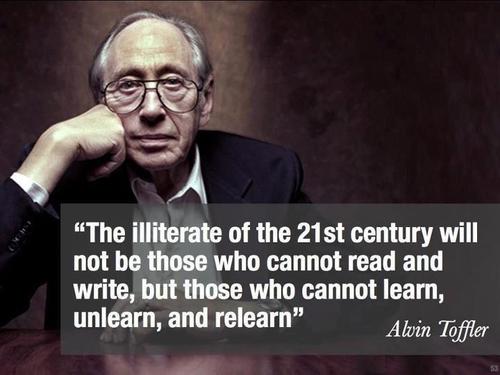 |
| /Source |
The deep genetic roots of our species show up in many ways. In sports, teams of even quite young players divide responsibilities with each player learning the special skills of his/her role in the game; only the youngest soccer players all try to do the same thing at the same time.
As civilization became more complex, knowledge and skill become more socially distributed. It may take a village to raise a child, but it takes a Silicon Valley to invent the Information Revolution, and a nation to run a modern economy. I believe that information is embodied in institutions and cultures as well as in genetics and the changes in the nervous system and muscles resultant from individual learning.
A modern organization has a structure and a set of procedures in which people function. The structure and procedures are, if you wish, software. In a large organization there is no complete documentation of the organization and procedures, indeed no one can fully explain them all. Yet the performance of the organization as a whole depends on the structure and procedures and not simply on the sum of the individual knowledge and skills of its members.
Similarly, information is embodied in other institutions. Consider markets. Even the weekly market in a small village depends on a structure -- what is sold where and when, and mechanisms to insure the trustworthiness of buyers and sellers. Sellers must be able to trust that payment is not made in counterfeit or debased money; buyers that weights and measures are fair and the products that they buy are not dangerous nor debased (such as watered milk). Even such a market will have people who mediate disputes between buyers and sellers. At the other extreme, the New York stock market is highly automated with complex organisations embodying a huge amount of information.
We also outsource knowledge and skill as individuals. Ever since the invention of books, people have depended on information stored in books rather than in their memories. It is far easier to recall where information is stored in a library than to memorize the content of the library; indeed, libraries incorporate information in the way they organize their books and in the catalog of the books; the librarian who catalogs books and helps the library user is another example of the social distribution of knowledge. In a professional library, the user may have the skill to utilize the knowledge in the books, but the librarian the skill to help find the right books quickly and efficiently (without the professional expertise to utilize the knowledge in the books).
An architect may use a powerful computer with powerful computer aided design software in creating the design for a building. It is very unlikely that the architect would have the skill to design the computer nor program the software. It is much less likely that the architect could manufacture the semiconductor chips that are integral to the computer. Yet the architects thinking is made quicker and deeper by the intelligence amplification of his computer and its software.
However, this is only one of many, many examples of the amplification of performance by information embodied in tools. The carpenter building the house designed by the architect is also using power tools that he could not himself design, themselves composed of materials he could not manufacture. Indeed, even a good carpenter works better with a well balanced hammer.
Schooling should take into account the social distribution of cognition. It should take into account that our application of knowledge and skill is mediated by the tools we use, the environment in which we work. To grossly oversimplify, schools should prepare students to function in society.
The job of schools is complicated by the fact that the graduates are going to be expected to function at high levels for decades, and that the society in which they are to function will change radically during those decades. Perhaps the most important functions of school will be to help students to love learning, to prepare them for lifelong learning. Indeed, schools should help students learn to integrate themselves into learning groups and learning communities; they will need to learn with other all their lives if they are to learn effectively and efficiently.

1 comment:
NICE BLOG!!! Education is the process of bringing desirable change into the behavior of human beings. It can also be defined as the “Process of imparting or acquiring knowledge or habits through instruction or study”. Thanks for sharing a nice information.
madras university distance education results
Post a Comment